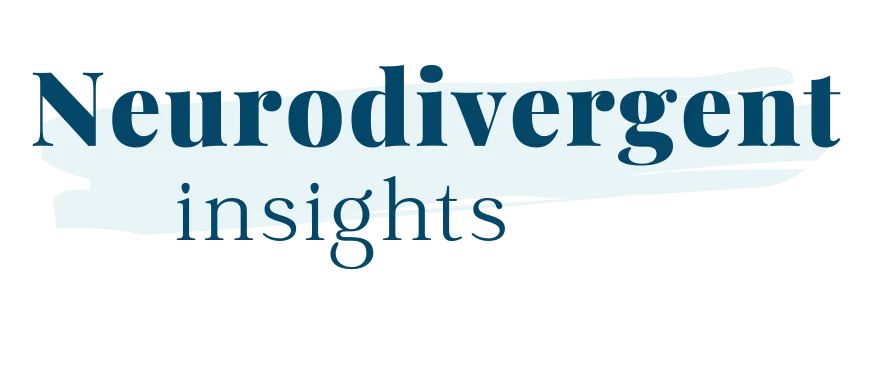
Blogs


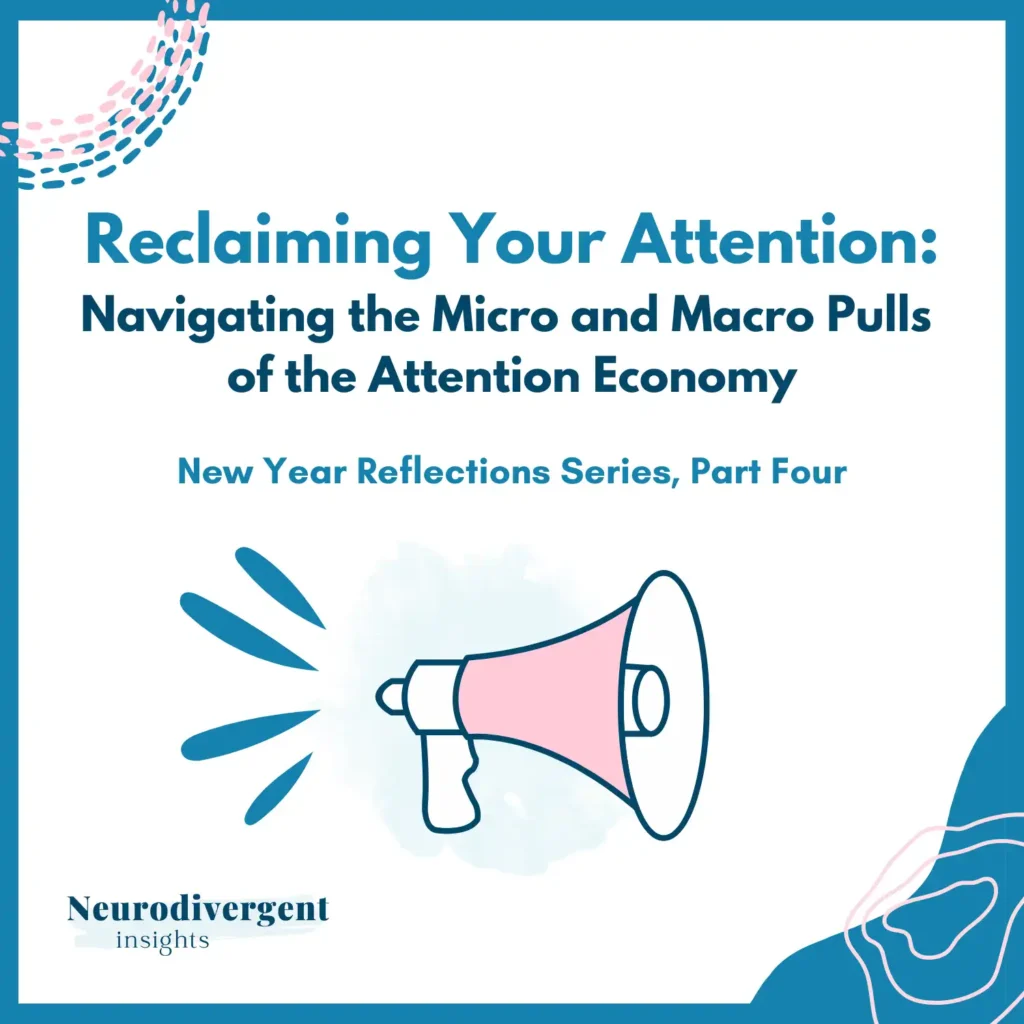
Neurodivergent Notes: New Year Reflections Series, Part Two. Neurodivergent Notes is a Sunday Newsletter / Essay I send out to
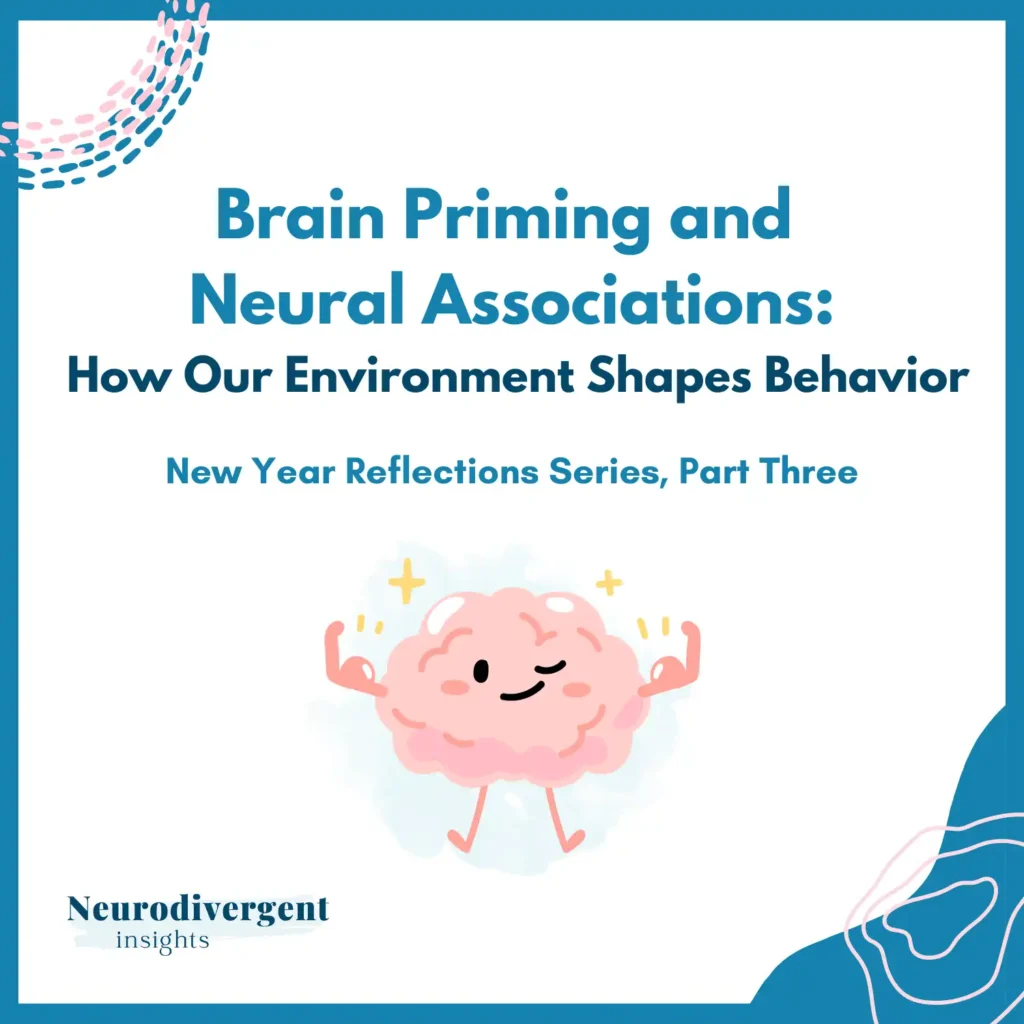
Neurodivergent Notes: New Year Reflections Series, Part Two. Neurodivergent Notes is a Sunday Newsletter / Essay I send out to
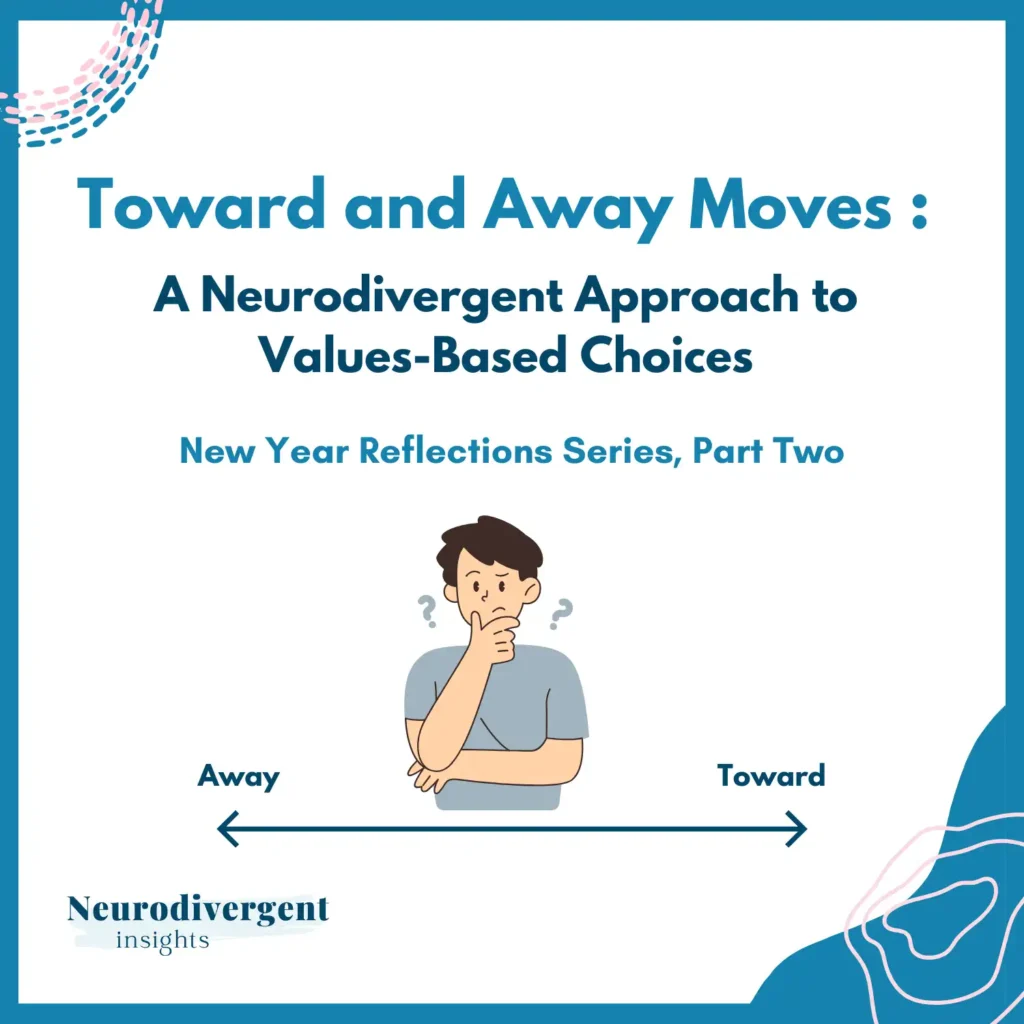
Neurodivergent Notes: New Year Reflections Series, Part Two. Neurodivergent Notes is a Sunday Newsletter / Essay I send out to
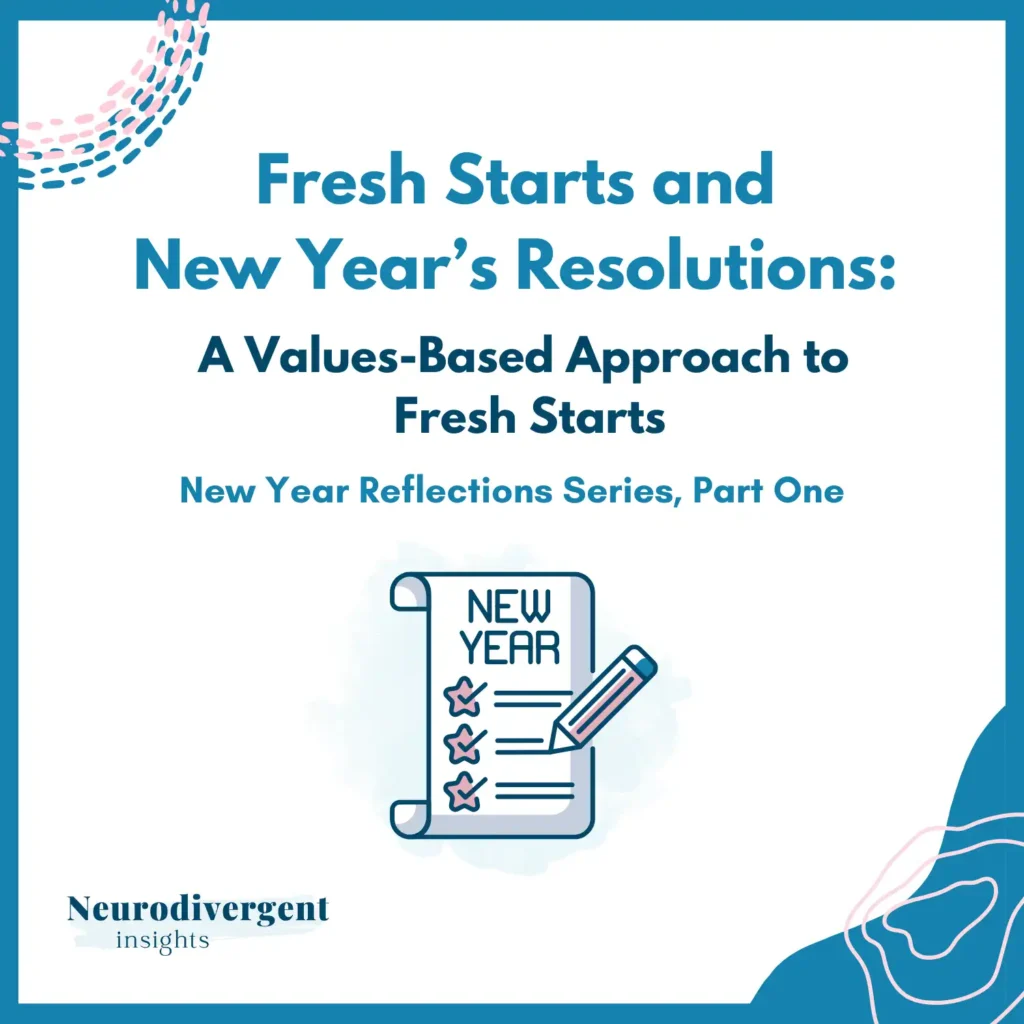
Neurodivergent Notes: New Year Reflections Series, Part One. Neurodivergent Notes is a Sunday Newsletter / Essay I send out to
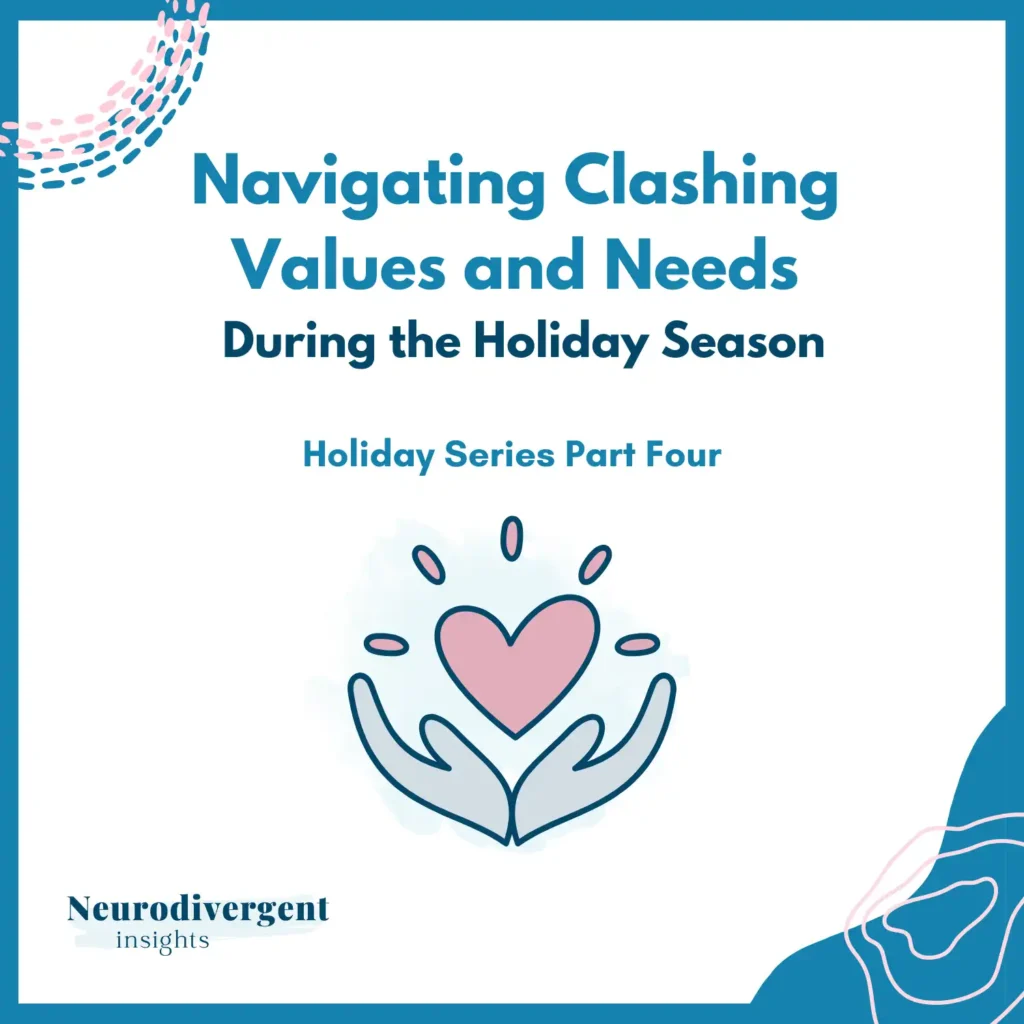
Neurodivergent Notes: Holiday Edition, Part Four. Neurodivergent Notes is a Sunday Newsletter / Essay I send out to readers each
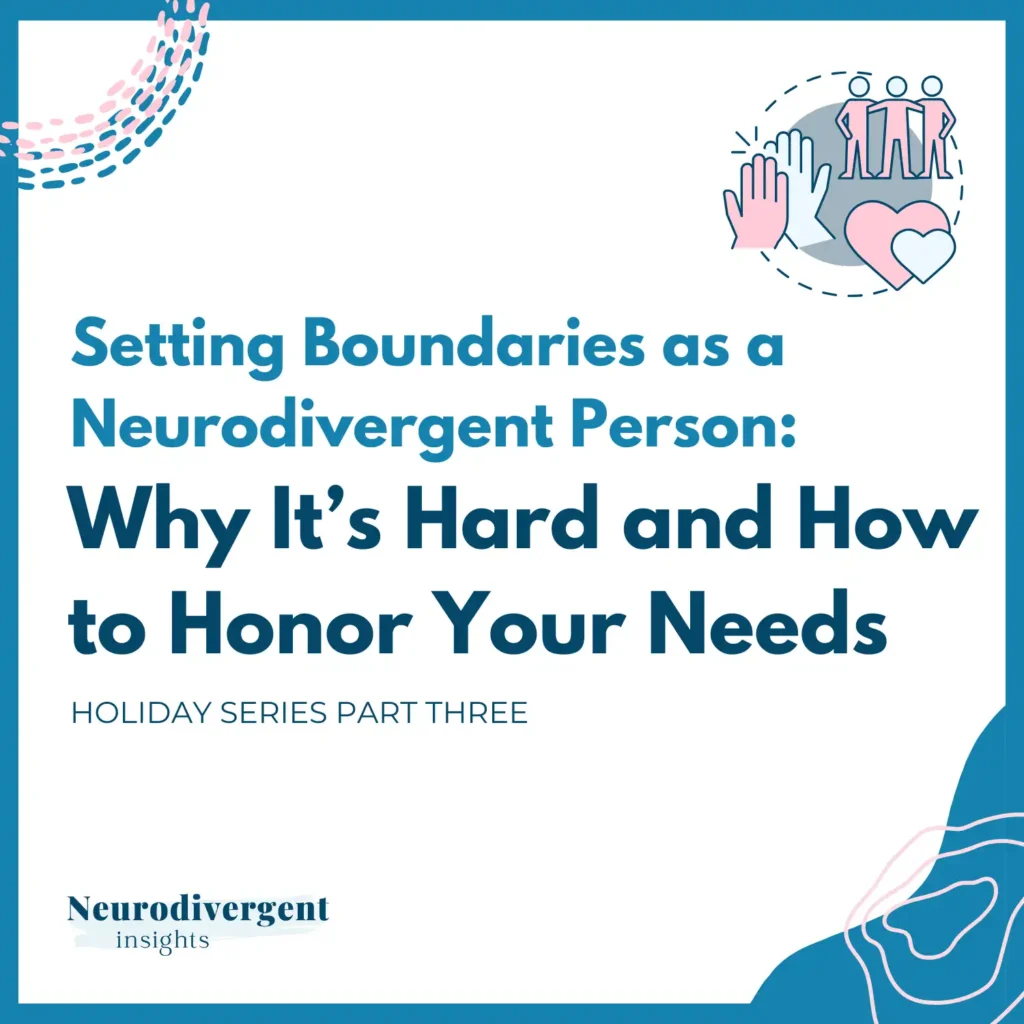
Neurodivergent Notes: Holiday Edition, Part Three. Neurodivergent Notes is a Sunday Newsletter / Essay I send out to readers each
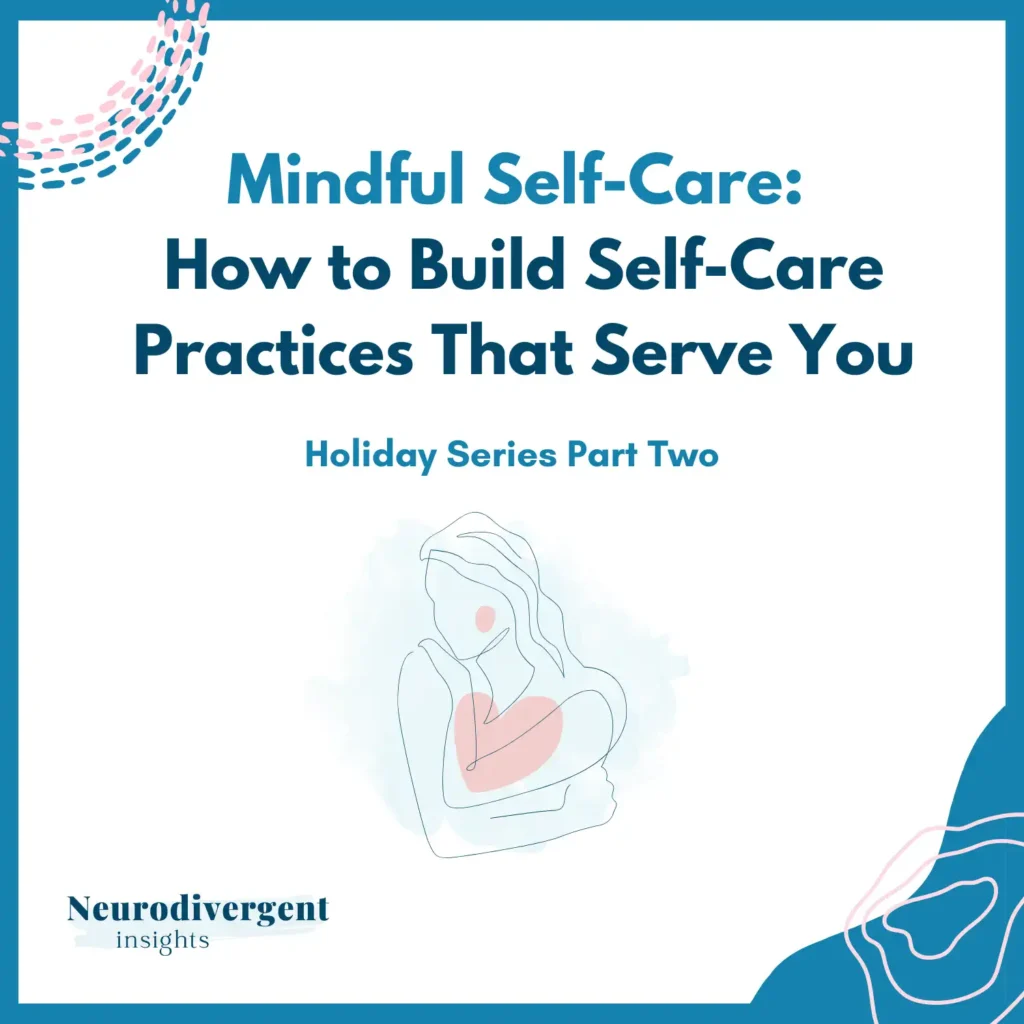
Neurodivergent Notes: Holiday Edition, Part Two. Neurodivergent Notes is a Sunday Newsletter / Essay I send out to readers each
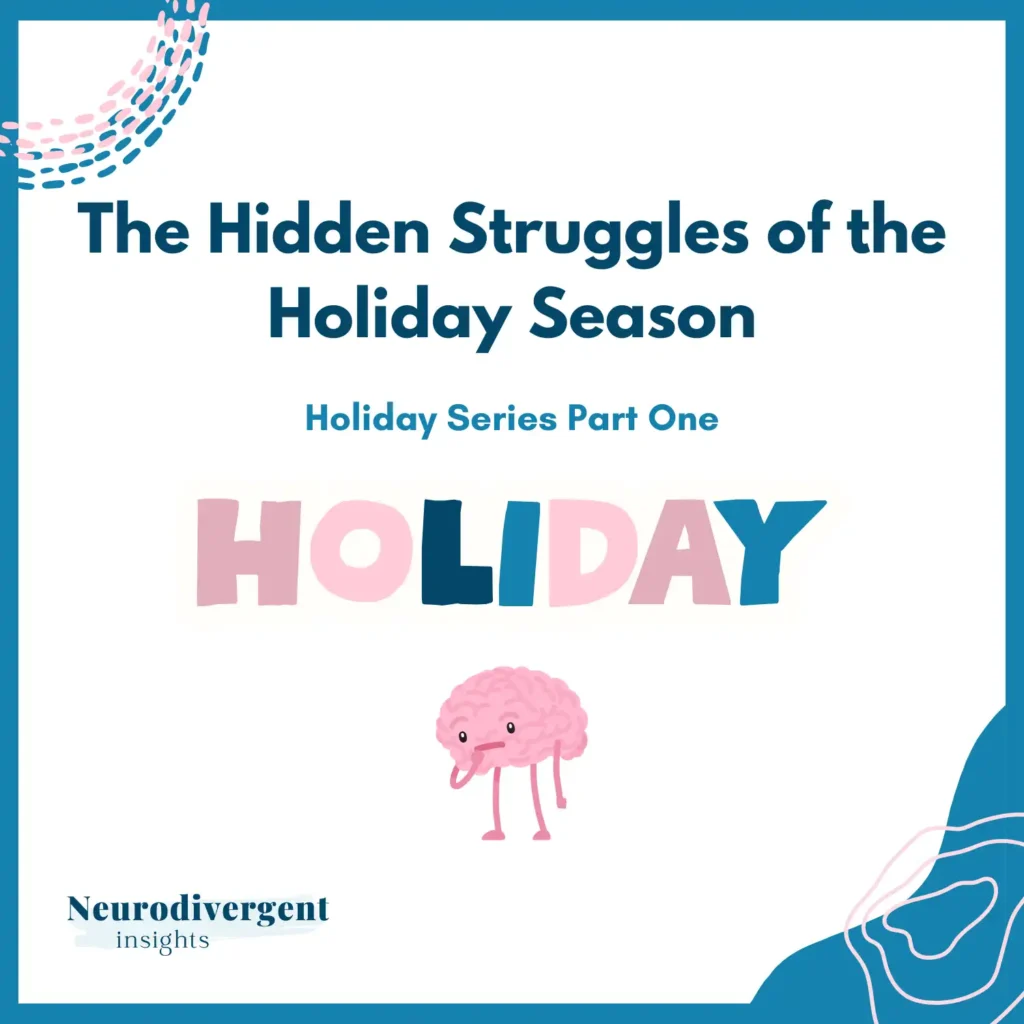
Neurodivergent Notes: Holiday Edition, Part One. Neurodivergent Notes is a Sunday Newsletter / Essay I send out to readers each
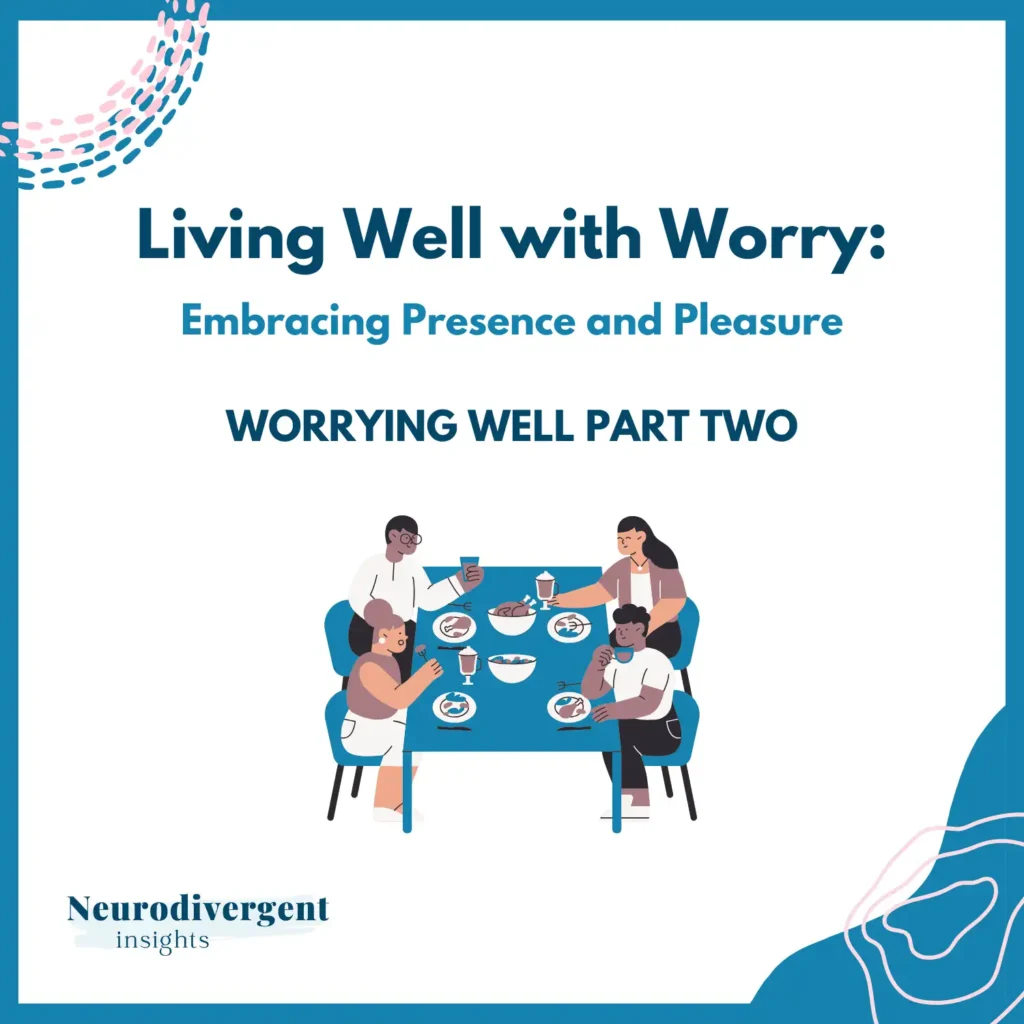
Last week, I wrote about how to worry well — about setting aside time each day to give our worries
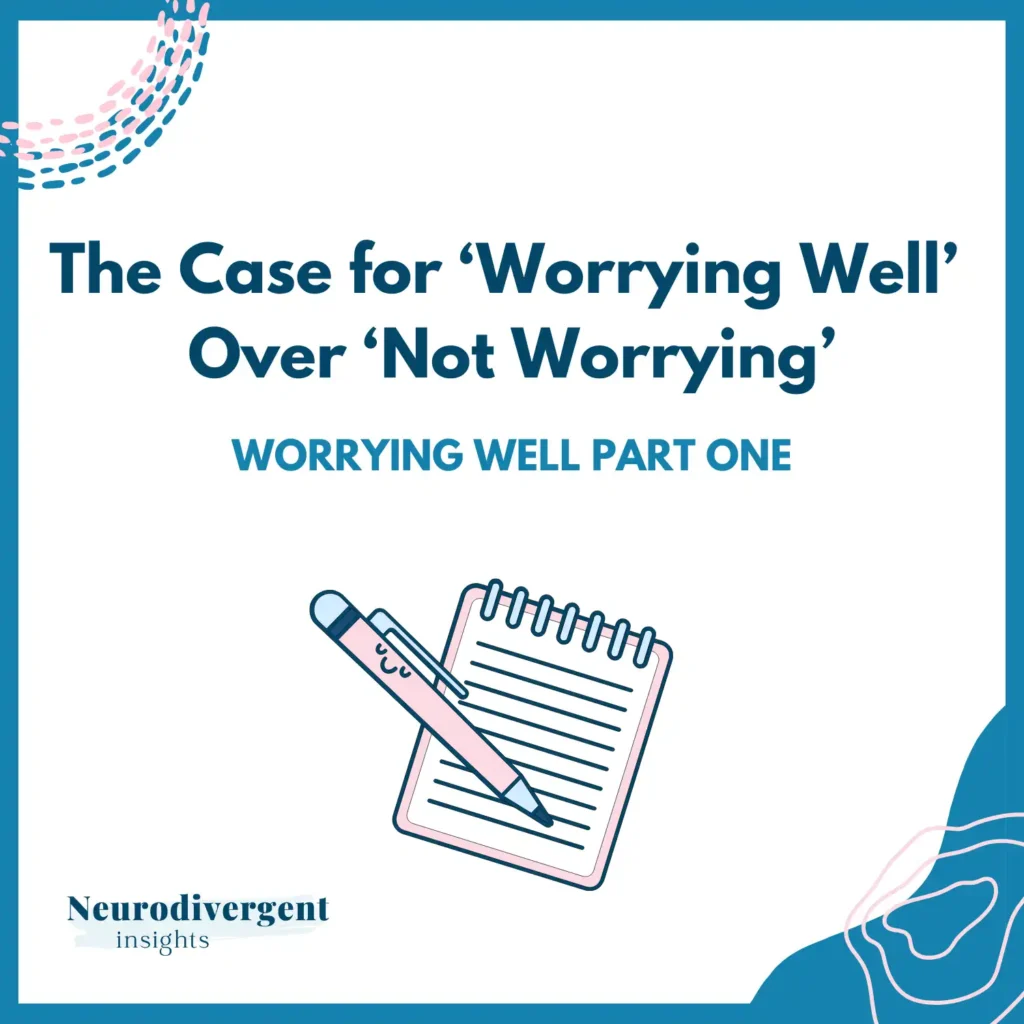
Worry gets a bad rap. From childhood, we’re told “don’t worry,” “keep calm and carry on,” or “there’s nothing to
Reclaiming Your Attention: Navigating the Micro and Macro Pulls of the Attention Economy
Neurodivergent Notes: New Year Reflections Series, Part Two. Neurodivergent Notes is a Sunday Newsletter / Essay I send out to readers each Sunday. These essays tend to be more reflective, personal as I chew on current events, psychology and neurodivergence. To…
Brain Priming and Neural Associations: How Your Environment Shapes Behavior
Neurodivergent Notes: New Year Reflections Series, Part Two. Neurodivergent Notes is a Sunday Newsletter / Essay I send out to readers each Sunday. These essays tend to be more reflective, personal as I chew on current events, psychology and neurodivergence. To…
Toward and Away Moves: A Neurodivergent Approach to Values-Based Choices
Neurodivergent Notes: New Year Reflections Series, Part Two. Neurodivergent Notes is a Sunday Newsletter / Essay I send out to readers each Sunday. These essays tend to be more reflective, personal as I chew on current events, psychology and neurodivergence. To…
Fresh Starts and New Year’s Resolutions: A Values-Based Approach to Fresh Starts
Neurodivergent Notes: New Year Reflections Series, Part One. Neurodivergent Notes is a Sunday Newsletter / Essay I send out to readers each Sunday. These essays tend to be more reflective, personal as I chew on current events, psychology and neurodivergence. To…
Navigating Clashing Values and Needs During the Holiday Season
Neurodivergent Notes: Holiday Edition, Part Four. Neurodivergent Notes is a Sunday Newsletter / Essay I send out to readers each Sunday. These essays tend to be more reflective, personal as I chew on current events, psychology and neurodivergence. To sign up…
Setting Boundaries as a Neurodivergent Person: Why It’s Hard and How to Honor Your Needs
Neurodivergent Notes: Holiday Edition, Part Three. Neurodivergent Notes is a Sunday Newsletter / Essay I send out to readers each Sunday. These essays tend to be more reflective, personal as I chew on current events, psychology and neurodivergence. To sign up…
Mindful Self-Care: How to Build Self-Care Practices That Serve You
Neurodivergent Notes: Holiday Edition, Part Two. Neurodivergent Notes is a Sunday Newsletter / Essay I send out to readers each Sunday. These essays tend to be more reflective, personal as I chew on current events, psychology and neurodivergence. To sign up…
The Hidden Struggles of the Holiday Season
Neurodivergent Notes: Holiday Edition, Part One. Neurodivergent Notes is a Sunday Newsletter / Essay I send out to readers each Sunday. These essays tend to be more reflective, personal as I chew on current events, psychology and neurodivergence. To sign up…
Living Well with Worry: Embracing Presence and Pleasure
Last week, I wrote about how to worry well — about setting aside time each day to give our worries attention and, in doing so, taking back some mental space. But managing worry is only one piece of the puzzle. The larger…
The Case for “Worrying Well” over “Not Worrying”
Worry gets a bad rap. From childhood, we’re told “don’t worry,” “keep calm and carry on,” or “there’s nothing to be afraid of,” as if worry itself is something shameful. We hear things like “it’ll all work out,” “don’t be…
Managing the Stress of Uncertainty: Insights from Uncertainty Management Theory
So, it’s November 3rd, two days before the election in the U.S., and I’ve been staring at a blank Google Doc for about 30 minutes, unsure how to start this essay. What do you write on the eve of a…
ADHD: Difference, Disability, or Both?
ADHD: Difference, Disability, or Both? This month, I’ve been unpacking some of my more complex feelings about ADHD — from my often-strained relationship with the ADHD side of my AuDHD experience (compared to the Autistic side), to exploring when self-monitoring…
Compensation Strategies vs. Accommodations: Navigating ADHD Support
This month I’m exploring some of the gray lines in ADHD. Last week, I dug into the difference between self-monitoring and masking. This week, I’m diving into a closely related topic: what is the difference between compensation strategies and accommodations…
ADHD: Difference, Disability, or Both?
ADHD: Difference, Disability, or Both? This month, I’ve been unpacking some of my more complex feelings about ADHD — from my often-strained relationship with the ADHD side of my AuDHD experience (compared to the Autistic side), to exploring when self-monitoring…
From ADHD Masking to Self-Monitoring: How to Shift from Shame to Agency
Last week, I reflected on my personal complexity when it comes to understanding and embracing my ADHD identity, and I introduced a four-part essay series to dive deeper into these complexities. This series coincides with ADHD Awareness Month, which has…
Object-Based Vs. Social Based Conversations
Certain questions, the kind meant to build connections, often have the opposite effect on me. When someone asks, “Tell me about yourself,” or “What’s been happening in your life?” I find myself freezing up, my mind spinning with a flurry…
The Double Empathy Problem: Why Autistic Communication is a Difference not a Deficit
Growing up, I often found myself struggling to connect with the people around me. My comfort zone was a narrow strip, a few subjects that I could talk about without stumbling. In the fundamentalist circles I moved through, it was…
From Deficit to Difference: Rethinking Autistic Communication in Cross-Neurotype Contexts
Rethinking Autistic Communication What if everything we thought we knew about Autistic communication was wrong? Traditionally, Autistic communication has been labeled a social deficit, and communication breakdowns attributed to shortcomings within the Autistic individual. However, emerging perspectives challenge this notion,…
Decoding PTSD: A Visual Guide to Understanding the DSM-5
DSM-5 Picture Series Welcome to another installment of our DSM-5 in Pictures series! This series aims to break down complex diagnostic criteria into visual and digestible understandings and to demystify the often intimidating world of mental health diagnoses. Too often,…
What is Disability Pride Month? And Why Does it Matter?
Reflecting on the diverse needs of humanity has been on my mind this past several weeks, especially with July marking Disability Pride Month. This is a time to celebrate and honor the disability community, recognizing our experiences and the significant…
So You Think You Might Be Autistic or ADHD? Here’s What to Do Next
Perhaps a friend you relate to was recently identified as Autistic or ADHD, or someone you follow on social media was diagnosed, and you resonate with their experiences. Maybe people in your life have suggested that you might be Autistic…
Working With Your Interest-Based Nervous System
Many surface-level interventions for ADHD start with something like this question: Have you used a planner? Planners, organizational systems, and many other strategies tossed at people with ADHD have one significant problem—the majority of them are based on an importance-based…
How the Interest-Based Nervous System Drives ADHD Motivation
ADHD motivation can be a finicky thing. It’s a hard thing to trust. One of the reasons I fall into hyperfocus and struggle to task-switch is that I don’t believe the interest and motivation will return should I decide to…
Interest-Based Nervous System: Understanding ADHD and Motivation
ADHD is often associated with difficulties in starting, completing, and initiating tasks. Case in point — I should be working on finishing my manuscript that is due Friday. But the topic of interest-based nervous systems has caught my interest, so…
DSM 5 Bipolar 2 Disorder Criteria
DSM 5 Bipolar 2 Disorder Criteria Exploring the complexities of mental health can reveal conditions with confusingly similar symptoms, complicating diagnosis and treatment. Last week we explored Bipolar I Disorder, and today we dive into Bipolar II Disorder, another condition…
DSM 5 Bipolar 1 Disorder Criteria
Navigating the complex landscape of mental health can be challenging, especially when identifying conditions with overlapping symptoms. Bipolar is one of those conditions with a complicated clinical picture, presenting symptoms that can mimic those of Borderline Personality Disorder or ADHD.…
Autistic Anxiety Treatment: Beyond Facing Your Fears
Treatment approaches for anxiety significantly vary between neurotypical and Autistic individuals, reflecting the unique characteristics of Autistic anxiety. Neurotypical anxiety often acts like a misfiring alarm system, signaling danger in safe situations. In contrast, Autistic anxiety not only responds to…
Autism and Anxiety: Its Impact on Autistic People
How Connected are Autism and Anxiety, and Does it Impact Autistics More? Earlier this year, I found myself seeking some much-needed sunshine on a trip to California with my youngest child. One day, as we enjoyed the small backyard pool,…
Autistic Anxiety and Anxiety: What’s The Difference
Autistic Anxiety vs. Neurotypical Anxiety: How to Spot the Differences As an Autistic-ADHD (AuDHD) adult, I’ve come to realize that my experiences of anxiety often manifest differently compared to my neurotypical peers. Common anxiety symptoms like catastrophic thinking and rumination…
Dorsal Vagal Shutdown: How to Identify a Shutdown
Affiliate Disclaimer: This article contains affiliate links, which means receive a commission if you click a link and purchase something that we have recommended. Please note that clicking these links won’t cost you any extra money, but they help us…
“I just don’t wanna” and the Power of a Visit
By Kourosh Dini, MD with Dr. Megan Anna Neff “I just…” “I just need to start,” and “I just don’t wanna” …are both familiar refrains for those of us with wandering minds. You may well know that once you’re in it,…
The Double Empathy Problem In Medicine: Autism, Health, and Communication
By Claire-Eliza Sehinson @nutritionforneurodiversity and Dr. Megan Anna Neff, PsyD (neurodivergentinsights.com) In a world that values progress in healthcare and inclusivity, the significant health disparities that Autistic people face remind us of the ongoing work needed. To address these disparities…
Reframing Autism: A Psychoanalytic Journey Towards Mutual Recognition
Embracing Autism: Finding a Narrative I recall standing in the kitchen, puttering on dinner, the children playing nearby. My husband gently brushed against me, touching the small of my back. My body recoils and shudders. Once I realize what I…
Parenting as a New Autistic Mother: The Impact on Daily Living
As later-in-life diagnosed Autistic woman, I started connecting the dots to make sense of my thoughts, behaviors, and life experiences. One area of my life where I gained particular clarity was my experience as a mother. Being a parent has…
Navigating Sensory Issues in Adults: A Guide
The world bombards us daily with bustling environments, vibrant sights, and resounding sounds. For some of us, these everyday experiences can quickly turn overwhelming, leading to a phenomenon known as sensory overload. When one or more of our senses become…
Neurodivergent Affirming Practice: Helping Your Clients Accept Their Authentic Selves
If you’re a therapist, you have perhaps heard the term “neurodivergent-affirming” or are acquainted with the concept of “neurodiversity,” which acknowledges neurological conditions as natural variations of brain style. Many of you may already be striving to apply neurodivergent-affirming practices…
Autism and Health Issues
Autism and Health Issues Unpacked: Exploring the Intersection of Autism and Chronic Fatigue Syndrome Autism Overview Do you ever find yourself navigating the maze of persistent fatigue, mysterious GI issues, hormonal sensitivities, and sensory sensitivities, wondering if these are linked…
Feelings Are Not Facts: How to Identify Experience from Reality
Navigating the intricate landscape of our inner world can be filled with intense emotions, where feelings are plentiful but not always factual. “Feelings are not facts” – this mantra serves as a crucial reminder as we interpret the powerful emotions…
The Function of Emotions: A Complete Guide for Neurodivergent People
Emotions play a fundamental role in our everyday lives, affecting how we experience and interact with the world around us. From the moment we wake up to the time we go to bed, emotions color our experiences, shaping our thoughts,…
Where Do Emotions Come From? A Complete Research Guide
Emotions, intricate blends of mental and physical states, form a broad spectrum. They encompass everything from the elation of joy to the weight of sadness, the fervor of anger, the surge of fear, the jolt of surprise, and the aversion…
Neurodivergent Insights In Review: Roundup of 7 most popular ADHD and Autism Blog Posts
As we gently close the chapter on 2023 and welcome the fresh possibilities of 2024, it’s that time of year where we start reviewing and reflecting. 2023 has been a big year for ADHD blogs and autism blogs and I…
What Are Emotions? A Complete Neurodivergent Guide
Navigating the different emotions we experience can be a challenge. Strong and overpowering emotions can leave us feeling overwhelmed when we’re trying to manage them. This article serves as a comprehensive guide to understanding emotions, addressing key questions like “What…
Top Gift Picks for Neurodivergent Individuals this Holiday
Affiliate Disclaimer: Please note that some of the links in this post are affiliate links. If you click on these links and make a purchase, I may receive a small commission at no extra cost to you. This helps support…
Exploring the Overlap: OCD and the Neurodivergent Mind
Obsessive-Compulsive Disorder (OCD) is notably more prevalent among individuals who are Autistic or have ADHD. The presence of OCD can intertwine intricately with these neurodivergent experiences, sometimes making it challenging to discern whether behaviors are manifestations of Autism, ADHD, or…
What is Obsessive-Compulsive Disorder (OCD)?
Understanding Obsessive-Compulsive Disorder As a child, whenever I had a bad thought (which was quite often, thank you to OCD intrusive thoughts!), or did something wrong, I would instinctively say the salvation prayer: “Jesus, come into my heart and save…
Uncovering the Roots and Evolution of Rejection Sensitivity Dysphoria
One question that I get asked a lot goes like this: “Is rejection sensitivity dysphoria distinct to ADHD?” The answer is yes and no. Yes, in the sense that the term “rejection sensitive dysphoria” is very interconnected to the ADHD…
How to Deal with Rejection Sensitive Dysphoria
Rejection Sensitive Dysphoria (RSD) is a formidable emotional challenge frequently entwined with Attention-Deficit/Hyperactivity Disorder (ADHD). Its far-reaching influence extends deep into our emotional landscape, relationships, and professional pursuits. It’s hardly surprising that a staggering one-third of individuals with ADHD deem…
Rejection Sensitive Dysphoria, Relationships, and How to Overcome Challenges
Navigating Rejection Sensitive Dysphoria (RSD) in relationships is like steering through turbulent waters. It tends to make us perceive slights, even when none were intended, which can strain our ability to maintain healthy connections. I can vividly recall times when…
RSD and Friendships: How to Navigate Challenges
Have you ever found yourself drifting away from a friendship over a minor mishap? Or perhaps you’ve felt hurt by what seemed like a small offense and chose to distance yourself? Maybe you’ve struggled with the idea of opening up…
Rejection Sensitivity Demystified: 10 Key Differences between Dysphoria and Normal Sensitivity
Ever heard of Rejection Sensitive Dysphoria (RSD)? It’s a bit sneaky, working behind the scenes and often catching us off guard. What makes it tricky is that it can make us question whether our reactions to perceived rejection are justified…
Rejection Sensitive Dysphoria and Its Painful Impact
Navigating numerous rejection sensitivity spirals has been a recurring theme in my life. Everyday interactions, such as receiving constructive comments, fleeting glances, or even well-intentioned feedback, can suddenly transform into emotional landmines when you’re grappling with Rejection Sensitive Dysphoria or…
The Upside of Dyslexia: Exploring 5 Hidden Strengths
I was recently invited to be a guest on the “ADHD for Smart Ass Women“ podcast, where I shared my experiences as a person with Autism, ADHD, and dyslexia. During our conversation, the podcast host, who is familiar with dyslexia,…
15 Parenting Tips to Help Highly Sensitive Children Thrive
I used to joke that parenting felt like an evolutionary arms race. The moment we figured out a strategy that worked for our child, they would change, and it would stop working, leaving us back at square one. This feeling…
Is My Child Highly Sensitive, ADHD, Autistic, or Anxious
In October, I’m speaking at the Master the Art of Parenting Your Sensitive Child Summit, which has got me thinking about what exactly even is a sensitive child? And how does their sensitivity intersect with other aspects such as…
Understanding the Highly Sensitive Child: Orchids, Dandelions, and More
This blog post may contain affiliate links. If you click on these links and make a purchase, I may earn a commission at no additional cost to you. I only recommend products and services that I personally use or believe…
What’s the Difference Between PDA and Demand Avoidance?
Some links in this post may be affiliate links, which means I earn a small commission if you make a purchase through those links at no additional cost to you I know a thing or two about demand avoidance! My…
How to Avoid Autistic Burnout and Why It’s Important
Some links in this post may be affiliate links, which means I earn a small commission if you make a purchase through those links at no additional cost to you Autistic burnout can throw a wrench in our lives. When…
How to Use Pacing Systems To Help with Neurodivergent Burnout
Pacing systems are helpful for anyone who is managing a chronic illness or a disability. I first learned about pacing systems when working in health psychology and working with oncology and chronic pain patients. I have since learned about how…
Dyslexia Tutoring: How to Help Your Student Succeed
From Childhood Tricks to Dyslexia Advocacy: My Journey with Neurodiversity Back in my childhood, I fancied myself quite the sneak. The process of learning words, reading, and spelling seemed like a labyrinth of dread, confusion, and overwhelm. In a moment…
The Unexpected Consequences of Sensory Overload in ADHD: 10 Hidden Impacts
In our daily lives, the world bombards us with bustling environments, vibrant sights, and cascading sounds. For some of us, especially those of us with ADHD (Attention Deficit Hyperactivity Disorder), these everyday experiences can quickly become overwhelming! When one or…
Empowering Your Child: The Benefits of Sharing Their Autism or ADHD Diagnosis
🌟 Guest Post: Written by Dr. Donna Henderson, Author of “Is This Autism?” you can find the original article here. When parents receive the diagnosis that their child is autistic or has ADHD, one question often arises: “How do I…
Executive Functioning Tutoring and How to Benefit from It
Executive dysfunction can significantly impact our lives—just ask my spouse, and he’ll tell you all about the ways it impacts our household! Before understanding that my struggles with organization, planning, cleanliness, focus, and working memory were connected to my ADHD,…
Why Sensory Safety Plans Are a Must-Have for Sensory Emergencies
Welcome back to the sensory regulation series, where we continue our journey toward sensory safety. So far in this sensory series, we’ve explored the significant role that sensory regulation plays in our life and have honed in our sensory profiles…
Discover the Top Sensory Calming Techniques: Grab The Complete Checklist
Some links in this post may be affiliate links, which means I earn a small commission if you make a purchase through those links at no additional cost to you Welcome back to the sensory safety series, where we continue…
5-Minute Sensory Checklist: Learn to Manage Sensory Overload
Welcome to the next installment of our series on cultivating sensory safety and well-being. In previous posts, we have discussed the significance of developing a sensory lens and understanding our sensory preferences. Now, we shift our focus to an equally…
Discover Your Sensory Preferences: The Complete Checklist
Welcome back to the mini-series on cultivating sensory safety! Throughout this series, we have delved into the realm of sensory regulation and its profound impact on our self-regulation. We’ve explored the importance of developing a sensory lens and crafting a…
Marker Learning Review: Get the Help You Need
Are you in need of an ADHD diagnosis or support but finding it challenging to obtain timely assistance? You’re not alone! The growing awareness of ADHD has resulted in a surge of demand for assessments, leading many psychologists to face…
Understanding Sensory Overload and Its Impact on Emotions
Some links in this post may be affiliate links, which means I earn a small commission if you make a purchase through those links at no additional cost to you. Have you ever felt like your nervous system is firing…
The Power of Sensory Regulation: Unleashing Well-being
Have you ever found yourself in a situation where it feels like your nervous system is on high alert, amplifying every sensory input around you? In those moments, even the most insignificant touch or sound can push you to the…
Autistic Burnout Symptoms: How to Spot Burnout
Throughout my 20s and 30s, I experienced several periods of depression, chronic fatigue, and debilitating crashes. At that time, I didn’t have an understanding of Autistic burnout and instead referred to it as “the black hole.” This term accurately described…
Weighted Vests, Autism, & Why and How to Use Them
Disclaimer: This post is sponsored by Ted Kangaroo. I received compensation in exchange for writing this post. However, all opinions expressed in this post are my own, and I only work with sponsors whose products or services I believe in…
What Does Autism Awareness and Acceptance Look Like in Action?
Disclosure: This post contains affiliate links. If you purchase through these links, I will earn a small commission at no extra cost to you. April marks Autism Awareness and Acceptance Month. Autism Acceptance Month is a time to celebrate the…
Sensory Overload & Tooth Brushing: 15 + of the Best Tips
Disclosure: This post contains affiliate links. If you purchase through these links, I will earn a commission at no extra cost to you. If you’re parenting an Autistic or ADHD child, odds are you have experienced toothbrushing struggles! Toothbrushing is…
Low-Demand Parenting and Why It’s Important
Parenting can be a wild ride full of constant adjustments and tweaks. My husband and I used to joke that it was a “co-evolutionary arms race” as we tried to keep up with our daughter’s changing needs. We have two…
Autism, ADHD, and the 3 Interoception Profiles You Need to Know
Not knowing when we’re hungry, difficulty feeling and communicating our emotions, intense feelings of pain—interoception difficulties have so many ways they can show up in us. But did you know there is more than one interoception profile you can fit…
How to Calm Down Fight or Flight Response: 6 Tips
Disclosure: This post contains affiliate links. If you make a purchase through these links, I will earn a commission at no extra cost to you. Do you feel overwhelmed and anxious, like you’re constantly on edge and ready to fight…
Emotional Identification: 5 Proven Activities for Better Emotional Literacy
Disclosure: This post contains affiliate links. If you make a purchase through these links, I will earn a commission at no extra cost to you. As an Amazon Associate, I earn from qualifying purchases. Thank you for supporting Neurodivergent Insights!…
Using the Arousal-Valence Model to Better Your Emotional Intelligence
The Arousal-Valence Model When it comes to identifying emotions, many neurodivergent individuals often struggle, myself included. When we struggle to identify our emotions, it is harder to self-soothe and regulate them. However, several visual tools are available to help with…
The Feelings Wheel: Learn How to Identify Your Emotions
When someone asks you how you are, do you feel stumped? If yes, you’re not alone. Many neurodivergent people experience difficulty identifying their emotions. As a fellow neurodivergent individual, I know firsthand how challenging identifying emotions can be! That’s why…
2022 Round-Up: 7 of Last Year’s ADHD Infographics
The 7 ADHD Infographics of 2022 Like many late-in-life diagnosed neurodivergent people, the topic of neurodiversity became a passionate interest. As a Psychologist, I was struck by how little my training had prepared me to understand the complexity of ADHD.…
Poor Interoception? Here’s What You Can Do About It
Disclosure: This post contains affiliate links. If you make a purchase through these links, I will earn a commission at no extra cost to you. As an Amazon Associate, I earn from qualifying purchases. Thank you for supporting Neurodivergent Insights!…
2022 Round-Up: 9 of Last Year’s Autism Infographics
The 9 Autism Infographics of 2022 Like many late-in-life diagnosed Autistic women, autism became somewhat of a special interest for me. As a Psychologist, I became fascinated by how little the mental health field understood about autism among women, genderqueer…
Autism, ADHD, and Homeostasis: What You Need To Know
Do you sometimes forget to eat or drink water because you didn’t feel hungry or thirsty? Have you ever suddenly realized you’re not breathing and need to breathe? Have you ever accidentally caused yourself to overheat because you didn’t realize…
Up and Down Regulation: How to Regulate Your Nervous System
Ever have those days where your energy is all over the place? One moment you’re buzzing with excitement, and the next, you’re completely wiped out. Understanding how to up-regulate and down-regulate your nervous system can help you find that perfect…
Understanding Autistic Women: 6 Must-Reads for Clinicians
There is a lost generation of Autistic women out here. Many of whom are finally coming to self-understanding and seeking support. With the flurry of autistic awareness, it has left patients and clinicians alike scrambling to catch up. We’re living…
Breathing for Relaxation: A 7-Step Exercise Tailored for ADHDers
Breathing is something we often take for granted. It happens automatically, and we rarely pay attention to it unless something goes wrong. I didn’t think much about my breathing until I became a Psychologist. In my training, I became fascinated…
Autism, Interoception, and How to Improve Your Awareness
During my deep dive into autism interoception, I was shocked to learn that some people are actually able to feel their own heartbeat! Heart beat detection is a common way that interoception is measured. Apparently, I don’t have the best…
The Window of Tolerance: How to Better Handle Stress
Disclosure: This post contains affiliate links, which means that at no additional cost to you, I may receive a small commission if you make a purchase through these links. I only recommend products that I believe will be valuable to…
8 Evidence-Based Relaxation Techniques for Calming Your Nervous System
The modern world can be a tough place for our nervous systems! We’re constantly bombarded with information and sensory input, and we may feel overwhelmed by work, school, finances, and the general demands of daily life. On top of that,…
The 8 Most Popular ADHD and Autism Infographics of 2022
As I look back on the past year, I can’t believe how much has changed with Neurodivergent Insights. When I first started this project, it was just a hobby and passion project, but it has since grown into something much…
Autistic Burnout Recovery: How to Build a Recovery Plan
Image of a person resting on a couch with the title of blog post: “Autistic Burnout Recovery: How to Build a Recovery Plan” Disclosure: This post contains affiliate links, which means that at no additional cost to you, I may…
What Causes Autistic Burnout? How to Identify Root Causes
Disclosure: This post contains affiliate links, which means that at no additional cost to you, I may receive a small commission if you make a purchase through these links. I only recommend products that I believe will be valuable to…
ADHD and Tea Benefits: 10 Teas that Calm Stress and Anxiety
Discover what the science says about teas and how certain tea herbs can promote a sense of calm and support ADHDers. Disclosure: This post contains affiliate links. If you make a purchase through these links, I will earn a commission…
Hypoarousal and Hyperarousal: How to Tell Which State You’re In
What exactly is hypoarousal, and how does it differ from hyperarousal? In my experience as a clinician, understanding these nervous system states can empower you to regain a sense of control over your body’s responses. By learning about the…
9 Relaxation Exercises for Sleep: Feel Calm & Get Better Rest
Sleep trouble is very common in this day and age. Because so many of us are overworked, have neurodivergence or undiagnosed medical conditions, deal with mental health issues, and more, our sleep is usually one of the first things to…
How to Improve Vagal Tone and Why It’s Important
We all want to be more present, flexible, and grounded people. Sometimes, it seems that it comes so naturally for some people, while many of us struggle everyday. If that sounds like you, I’m here to tell you that there’s…
What is HRV: The Importance of Heart Rate Variability
Do you ever feel like you become angry or shut down really easily? Maybe it’s difficult for you to stay present when you’re with other people, to listen, or to engage socially whatsoever. If something like this is true for…
CBT-I and Insomnia: Train Your Brain to Get Good Sleep
When we are consistently struggling with insomnia or other sleep-related problems, our minds can sometimes get involved and make our sleep issues much worse. It’s easy to get into harmful thought and behavior patterns that enforce poor sleep. Thankfully, CBT-I…
What is Interoception and How to Improve Yours
I didn’t learn what interoception is until after I completed my doctoral training in clinical psychology. Once I learned what interoception is and its important role in emotional regulation, I was shocked that this was not a basic concept in…
Alexithymia and ADHD: the Most Common Overlappings
Are you an ADHDer who struggles with your emotions? Do you get overwhelmed by them or struggle to understand them? When stressed, do you go to emotional eating, drinking, or other unhealthy coping strategies? The connection between emotional sensitivity and…
